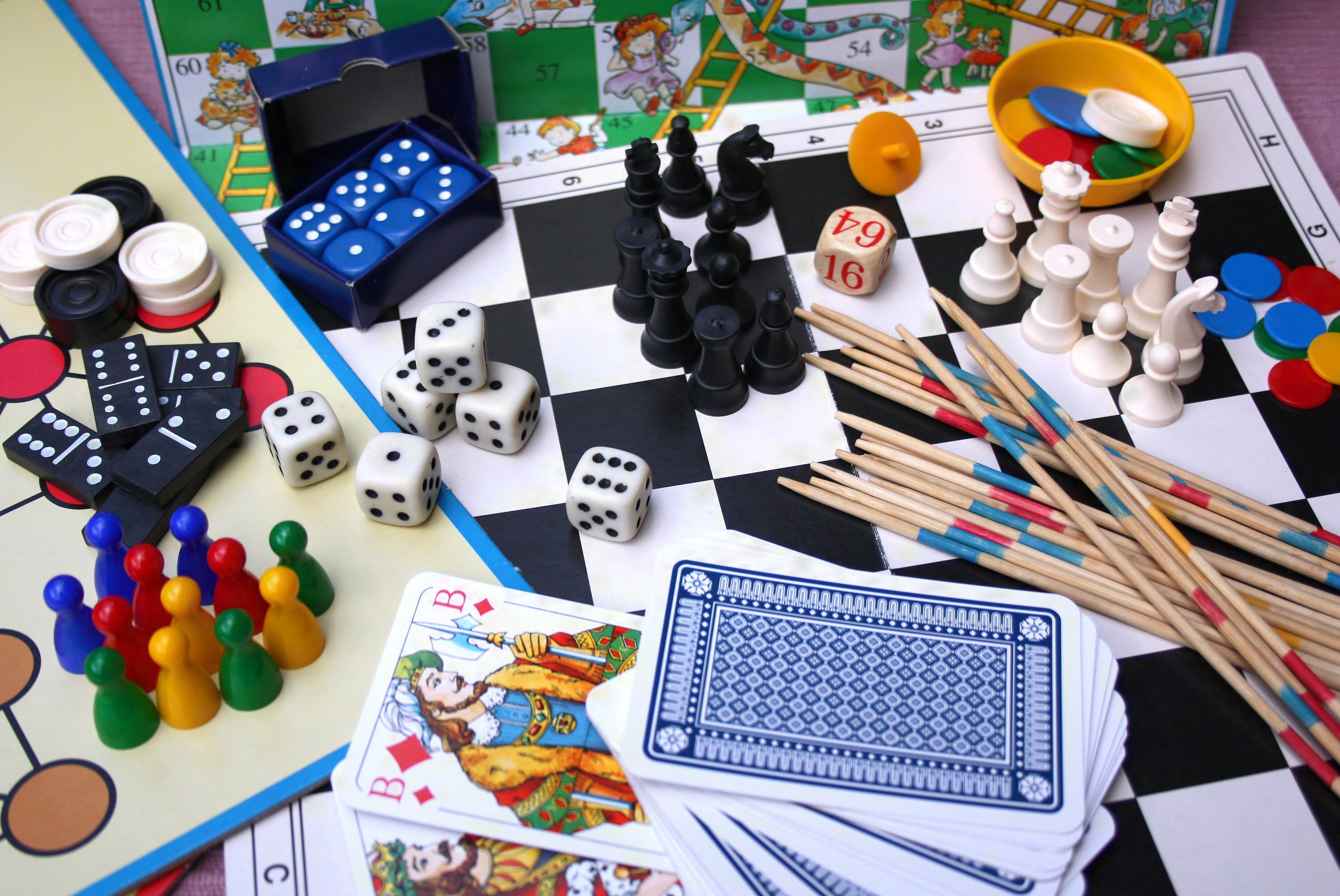
The Evolution of Board Games

The Evolution of Board Games
A Brief History of Board Games: From Ancient Times to Modern Day
Board games have an extensive history, tracing back to the ancient civilizations of Egypt and Mesopotamia. The ancient Egyptian board game, Senet, and the Royal Game of Ur from ancient Mesopotamia were among the earliest known board games. These ancient board games were not just sources of entertainment; they played significant roles in religious and symbolic practices, providing a window into early societies’ beliefs and daily lives.
As time progressed, these games evolved into more complex forms. Traditional board games became a foundation for intellectual and social interaction among communities, reflecting the advancements of human culture. In modern times, the concept of board games has expanded further to include role-playing games, which offer even deeper layers of strategy and engagement, allowing players to immerse themselves in diverse narratives and worlds.
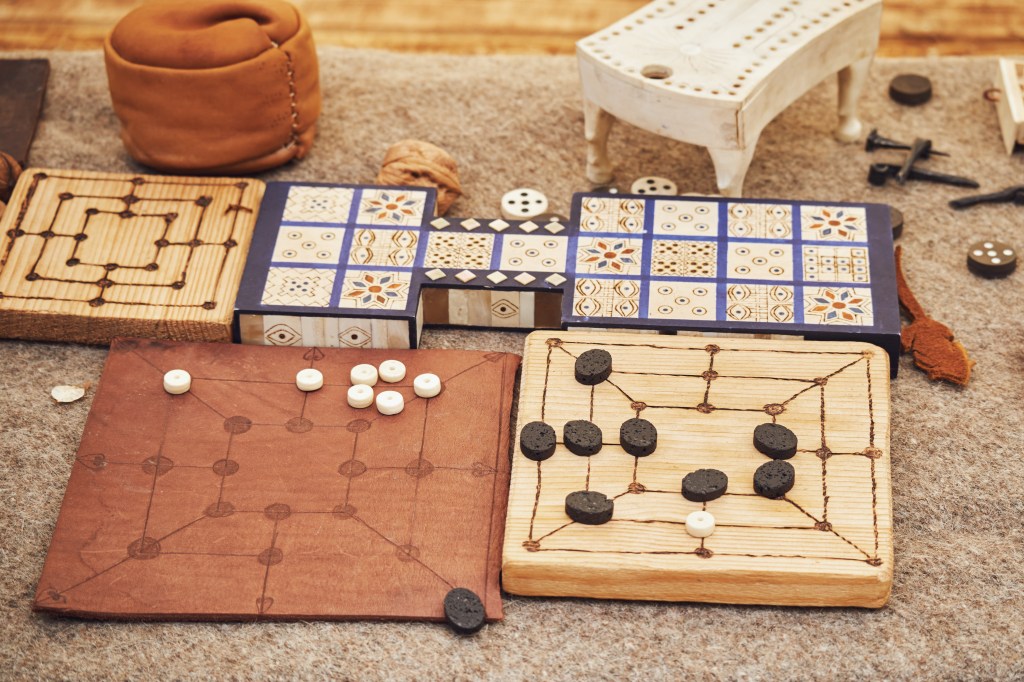
The Royal Game of Ur is an ancient board game from Ancient Mesopotamia. The game involves two players competing to race their pieces from one end to another. The first known board game was reported in ancient Egypt around 5,500 years ago. Senet boards were popular games, and the origins of chess can be traced back to the Indian game of war.
Merrils, a strategy game with two players, originated in the Mediterranean or Middle East around 500 years ago, was later adopted by the Roman Empire, and became popular in Western Europe during the Middle Ages.
The 19th century saw a shift towards educational play, with games like educational jigsaw puzzles and complex games that educated children about history and geography. In the 20th century, there was a focus on diversified games for family play, with popular themes such as Christmas games.
The board game market has exploded in recent years, from dice games to card games; modern board games echo the remarkable transition from early board games to the sophisticated options available today. This shift not only brings to the forefront the rich history associated with playing games but also emphasizes their integral role in human history and facilitating human connections. The long history of traditional board games to the present variety underlines the boundless creativity and critical thinking fostered through this timeless form of entertainment.
Through every iteration, from ancient pastimes to the intricate role-playing and traditional board games we see now, there is a clear reflection of the evolving human experience, underscoring the continued fun and innovation within the board game market.
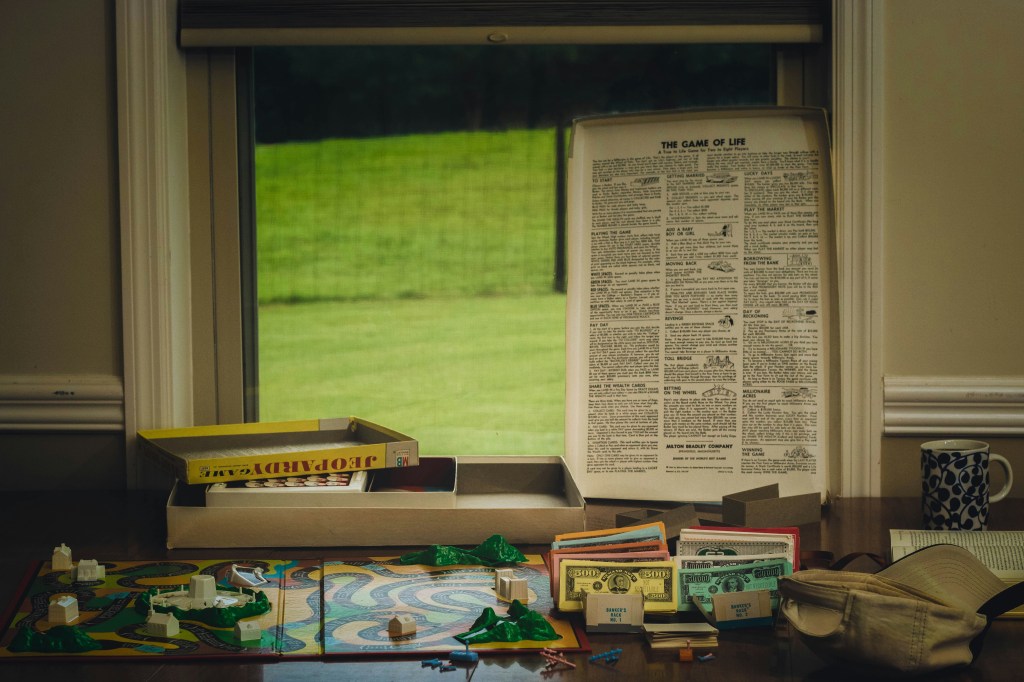
The Most Valuable Vintage Board Games and Their Stories
Exploring the realm of vintage board games unveils a treasure trove of nostalgia, rarity, and, sometimes, astonishing monetary value.
Among the jewels of this collection stands the Sidney Mobell Monopoly, a dazzling interpretation of the classic game, which fetched a staggering $2 million. Crafted in 1988, this version is not your average family game night fare; it’s embellished with 23-carat gold and adorned with an array of precious gems, including rubies, sapphires, and diamonds.
But the allure of vintage board games doesn’t stop at Monopoly. The Swift Meats Game, a promotional item from a meat company, surprised many when it sold for $2,644, owing to its scarcity and unique 18-card standup design.
The Shadow Board Game, based on a popular radio show and pulp comics hero, is another rare find, fetching $1,800. Signed memorabilia also holds a special place in collectors’ hearts, as seen with a Batman and Robin game that sold for $1,380, likely elevated in value by the signatures of the show’s actors, such as Adam West.
Other notable mentions include the Greek version of Lost in Space, Dark Tower, Gay Monopoly, the Disneyland Game, and Dark Shadows Game, with their values ranging from $130 to $800. These games provide a glimpse into the past and underscore the diverse reasons behind their collectability, from their historical significance and rarity to their connection with popular culture and celebrity.
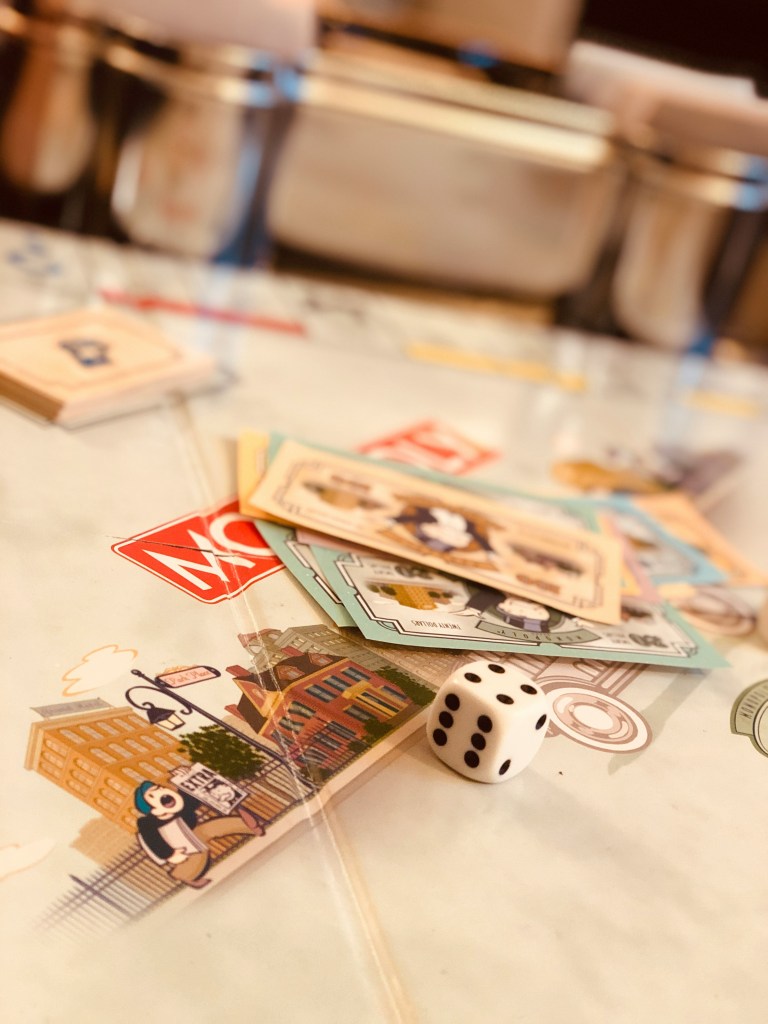
Organizing and Displaying Your Board Game Collection
When considering the best practices for organizing and displaying your board game collection, applying a blend of creative ideas and strategic thinking is essential. One approach, the Jones Theory, advises keeping only the most favored game in a category of similar games to avoid redundancy. This ensures your collection remains distinct and valued.
Equally important is setting realistic goals and parameters based on your available gaming time, space, and budget. Reflecting on the amount of free time you can allocate to gaming, the likelihood of hosting game nights, and the size of your space can guide your collecting strategy. This includes considering the types of games your guests enjoy, as the number of players and their preferences will influence your choice of games.
Also, acknowledging the length of games about your and your friends’ patience for lengthy sessions can significantly enhance the gaming experience. Lastly, establishing a budget that accounts for the cost of new releases ensures your collection grows sustainably.
Keeping these factors in mind can transform how you organize and display your board game collection, making it a tailored and fun experience for everyone involved.
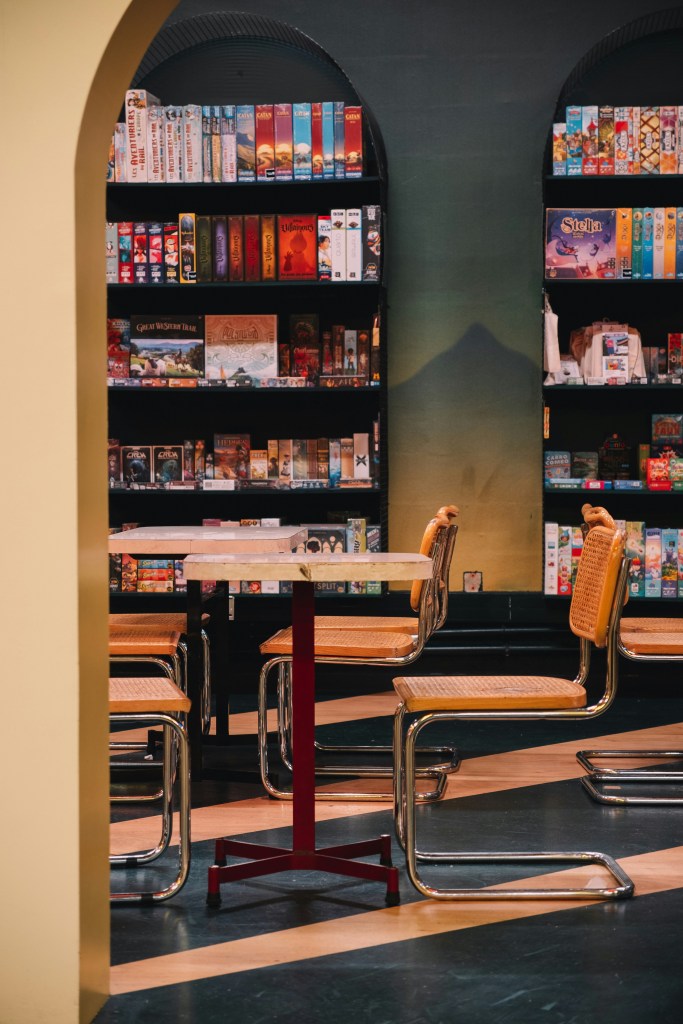
The Six Stages of Board Game Collecting
The life of a board game collector is a fulfilling, yet tumultuous journey marked by passion, chaos, and an ever-evolving relationship with shelf space. It begins with meticulously curated displays likened to art galleries, where each game is a masterpiece deserving of its spotlight. However, as the collection grows, the focus shifts to efficiently maximizing space, leading to the chaotic game of 3D Tetris and the subsequent stage of cramming games into every available inch. Cover art becomes a secondary concern in pursuit of space, and eventually, some collectors enter the radical ‘Box-less Revolution’ stage, reimagining traditional storage methods.
The cycle often comes full circle as collectors return to a semblance of order by prioritizing frequently played games. Regardless of the stage, being a board game collector is an emotional and rewarding journey filled with joy, despair, and the acceptance of the shared madness that unites the community.
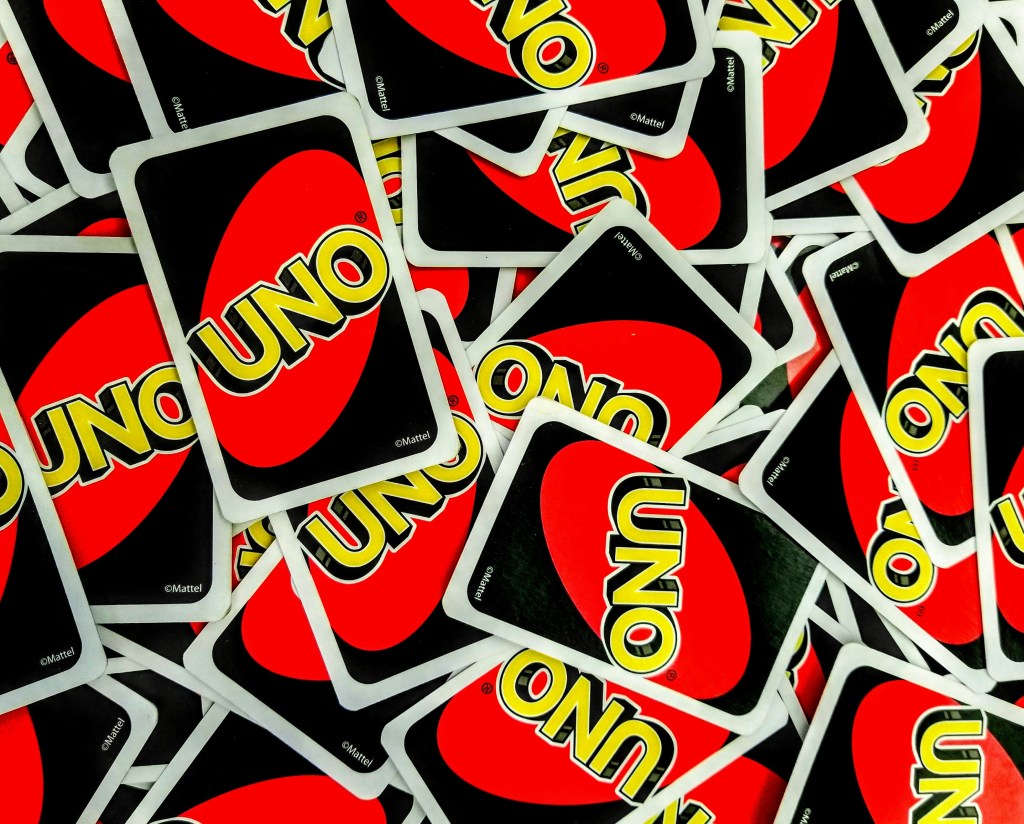
Why You Should Limit Your Board Game Collection
Maintaining a manageable board game collection can significantly enhance your gaming experience, ensuring each play session is enjoyable and clutter-free. If your shelves are overflowing, it might be a great time to reassess your collection. Keeping your assortment of games limited helps keep your playing area tidy and guarantees that each game you own is one you genuinely enjoy. This curation process can lead to a deeper appreciation for the games that cut, as you’ll likely have more of a personal connection to each.
Setting clear boundaries on what to buy and skip can also lead to substantial financial savings. With this approach, you’re more likely to invest in games that offer meaningful experiences rather than impulse buys that might not see playtime. The money saved can go towards enhancing your current collection – think expansion packs, sleeves, and accessories that elevate gameplay experiences.
Maintaining a streamlined collection ensures you won’t lose your space to an array of boxes. By prioritizing quality over quantity, you’re also taking steps to preserve the condition of the board games you own. Each game has its place, minimizing the risk of damage and ensuring your favorites remain playable for years.
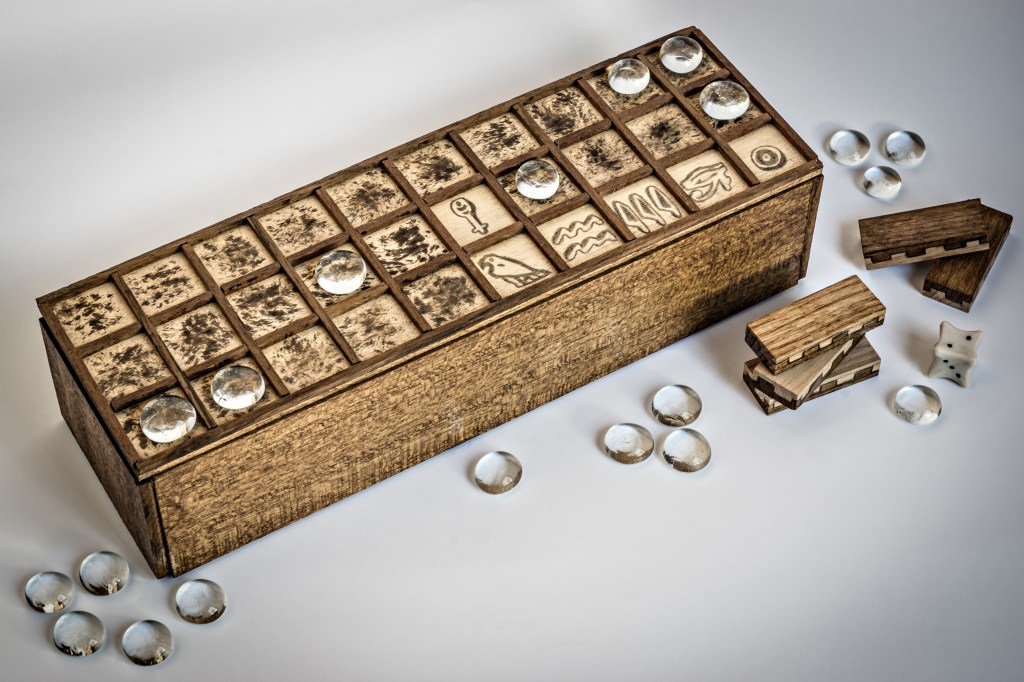
But how does one decide on the limits of their collection? It’s a deeply personal choice shaped by how frequently you play, your specific interests within the hobby, and your available storage space. Those who play games more regularly might justify a more extensive collection, while a casual gamer might prefer a curated selection of titles that see playtime on every occasion.
Reflect on your gaming habits when considering whether to expand or reduce your collection. How often do you play, and do they include the games currently on your shelves? Review whether there’s redundancy between your collection and that of your friends. It’s also wise to revisit games you haven’t played in some time – if you haven’t hit the game boards in the last few months, ask yourself why. Additionally, establishing a budget for game purchases and evaluating your storage capabilities can prevent your hobby from overtaking your living space and finances.
They ultimately decide whether you’re buying games to play or as collectibles, which will influence how you curate your collection. By taking a thoughtful approach to which game you choose, you can ensure your board game collection brings joy and excitement to every game night without excess burden.
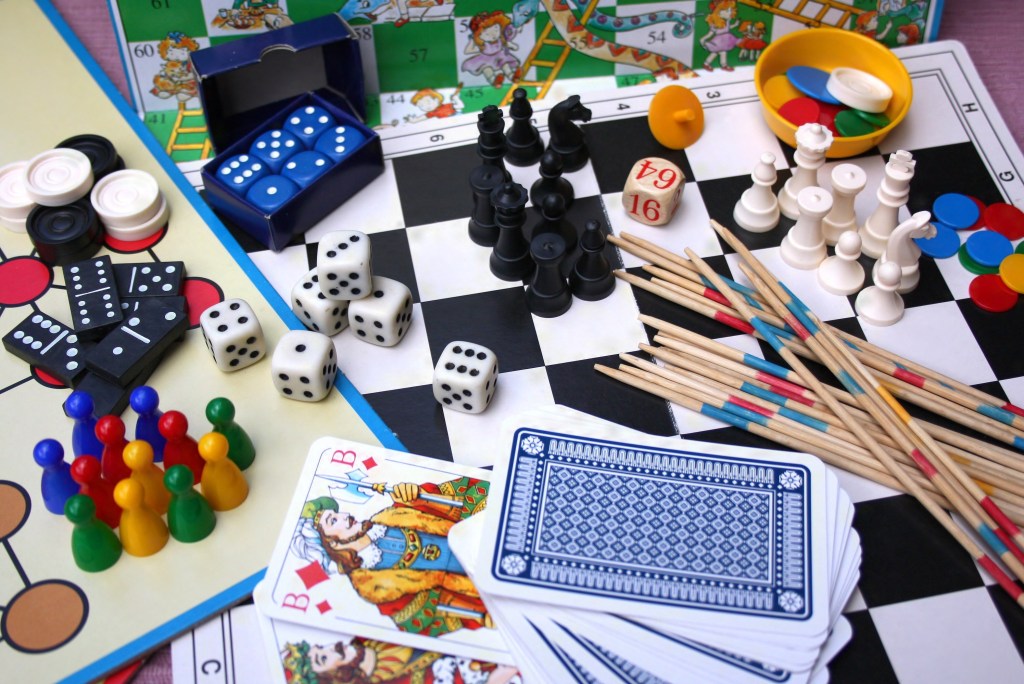
How to Care for and Maintain Your Board Game Collection
There are several key tips to remember when it comes to maintaining your board game collection. Firstly, store your games in a cool, dry place away from direct sunlight to prevent damage. Be sure to handle game components with clean hands and consider using card sleeves for added protection. Organize and store game pieces separately to prevent loss, and reinforce worn-out boxes with packing tape. In case of spills, act quickly to dry the components. By following these simple tips, you can ensure that your board games stay in excellent condition for years, preserving their playability and value.
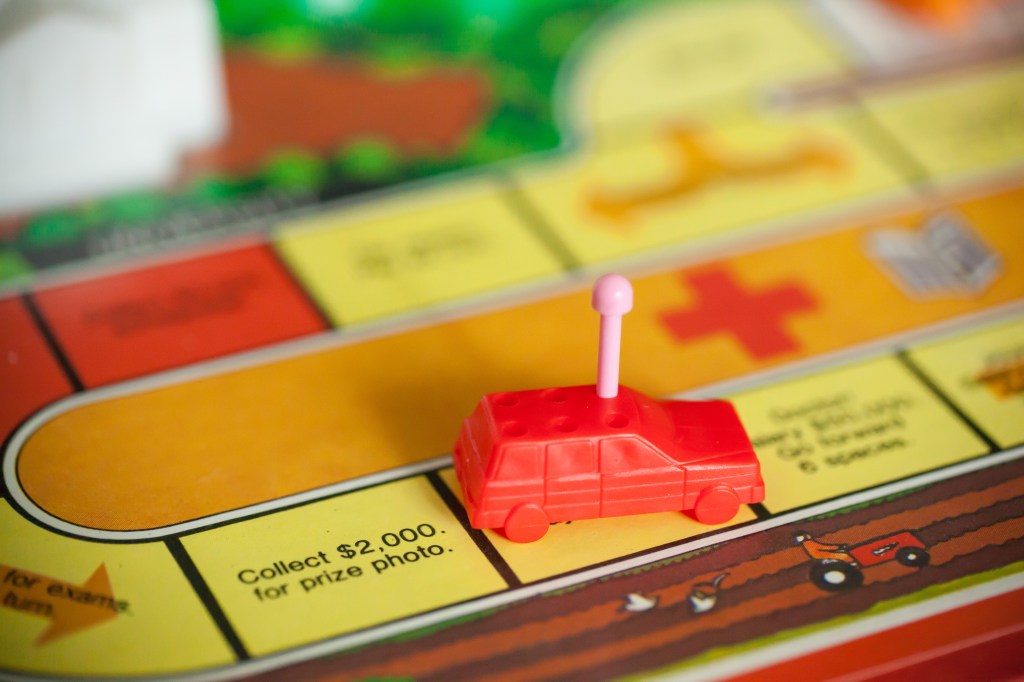
The Best Board Games to Start Your Collection
Starting or expanding a board game collection is an exciting venture. Board games provide endless entertainment and the opportunity to create lasting memories with friends and family. With so many options, picking the right ones to add can be overwhelming. Here’s a handpicked selection of top board games to streamline the decision process. This list includes popular games known for their engaging design, simple games that are easy to pick up for quick fun, and great games that stand the test of time. Each game has been chosen for its unique ability to cater to various interests, ensuring they’re perfect additions to any collection.
For those who love puzzles and a bit of competition, Carcassonne is a superb tile-laying game that’s easy to get into but offers deep strategic play. The game involves drawing and placing tiles that depict parts of the countryside, including cities, roads, and fields. Players then place their “meeples” on these tiles to claim areas and score points based on the completed features like cities and roads. What makes Carcassonne stand out is its quick setup and the fact that it’s easy to learn, making it an ideal game for beginners and seasoned players alike.
Pandemic is a must-have cooperative game if you’re looking for a game that emphasizes teamwork and strategy. Players take on the roles of different specialists, including doctors and scientists, working together to combat plagues threatening to wipe out humanity. The game is lauded for promoting teamwork, as players must collaborate to find cures and stop the outbreaks, and its easy-to-understand rules make it accessible to new players. The cooperative nature of Pandemic also means that it’s a fantastic game for fostering social interaction and is guaranteed to encourage numerous replays.
Lastly, for those interested in negotiation and strategy, Settlers of Catan is a classic negotiation game that shouldn’t be missing from any collection. Players aim to build the most prosperous settlement on the island of Catan through resource management, trading, and negotiation. The game encourages player interaction and strategy as participants trade resources and compete to build structures and earn victory points. Although the game involves a dice roll, which might not always be favored by players, the strategic negotiation elements make it a game full of intrigue and replayability.
Each of these games offers something unique and can provide countless hours of fun and learning. Whether you’re drawn to the tile-laying puzzles of Carcassonne, the cooperative challenges of Pandemic, or the strategic negotiations of Settlers of Catan, playing these games and adding them to your collection will surely enhance your board gaming experiences.
FAQ
Why should I insure my board game collection?
Insuring your board game collection provides financial protection against potential loss, damage, or theft, ensuring that your prized possessions are safeguarded.
How do I determine the value of my board game collection?
The value of your collection can be determined by factors such as rarity, condition, demand, and historical significance. Consulting with a professional appraiser can provide an accurate valuation.
What are the benefits of collecting board games?
Collecting board games can offer intellectual stimulation, social engagement, and a connection to historical and cultural heritage. It can also be a rewarding hobby that connects you with a community of fellow enthusiasts.
How can I best care for my board game collection?
Regular cleaning, proper storage, and careful handling are essential for maintaining the condition of your board games. Avoid exposing them to extreme temperatures, humidity, and direct sunlight.
What types of insurance policies are available for board game collectors?
Specialized collector insurance policies offer coverage tailored to the unique needs of collectors, including protection against damage, theft, and loss.
Where can I find valuable vintage board games for my collection?
Valuable vintage board games can be found through specialty retailers, online marketplaces, auctions, and conventions dedicated to board games and collectibles.
How do I display my board game collection without damaging them?
Use display cases, shelves, and organizers designed for collectibles to keep your board games safe. Ensure they are kept in a clean, dry environment away from direct sunlight.
Can I appraise my board games myself, or do I need a professional?
While you can research and estimate the value of your board games, a professional appraiser can provide a more accurate and reliable valuation, especially for rare and high-value items.
Sources
https://www.english-heritage.org.uk/learn/histories/board-games/
https://dailyworkerplacement.com/2017/12/11/the-six-stages-of-board-game-collecting/
https://geekken.blog/2012/08/28/keeping-a-manageable-board-game-collection/
https://www.meeplemountain.com/articles/why-you-should-limit-your-board-game-collection/
https://www.lovetoknow.com/home/antiques-collectibles/vintage-board-games-valuable-classics-demand
https://www.thegamer.com/best-board-games-to-start-a-collection/
About Collectibles Insurance Services
Collectibles Insurance Services has been protecting collections since 1966 and all coverage is provided by a carrier with a group rating of “A” (Excellent) by AM Best, the leading rating agency for the insurance industry.
Comprehensive coverage includes, but is not limited to: accidental breakage, burglary, fire, flood, loss in the mail, theft, natural disasters, and other causes of loss unless specifically excluded from the policy. Deductibles start at $0 for collector policies and we provide coverage for the market value of your collection for losses in excess of $50.
Additionally the protection extends At home and away, and we don't require collection itemization and serial number nor extensive paperwork and red tape.
